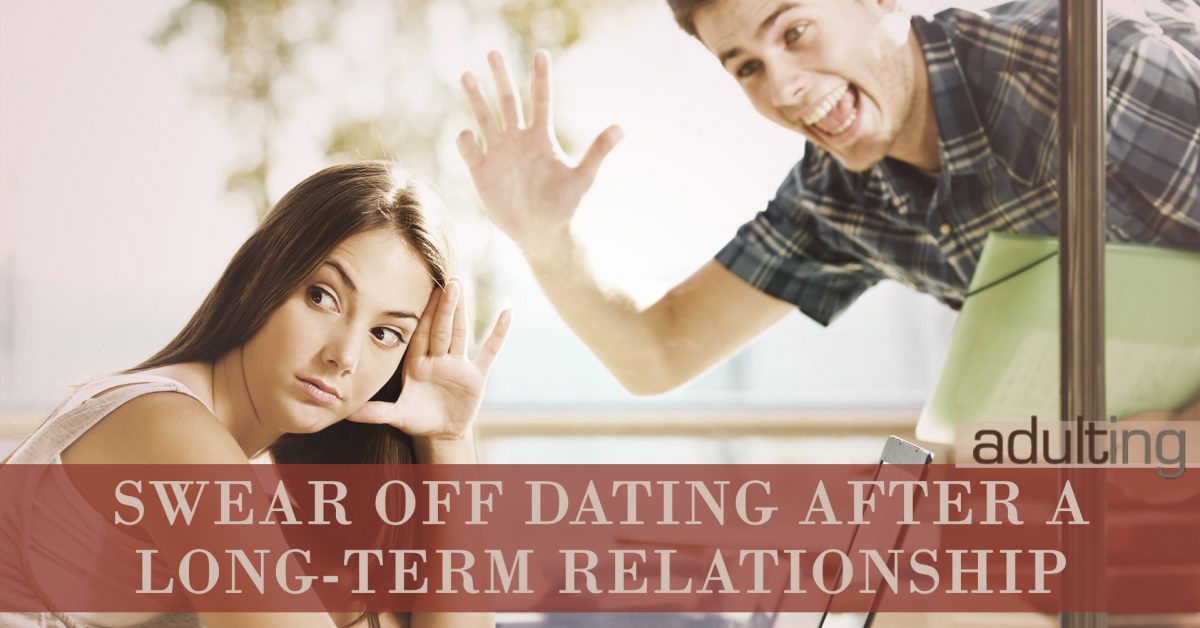Early this year, I decided it was time for me to dip my toe into the world of dating. My divorce had been final for a few months, and I figured it was time to meet new and interesting people — even though I’m 90% certain at this point that marriage isn’t in the cards for me again.
After some thought, and after asking a few friends, I decided to start with OK Cupid. (Never fear. Over the next few months, I’ll try other dating sites and write about them, too.) I actually really enjoyed my OKC experience, even though there were some weird moments.
Belle of the ball.
This was my first whack at online dating. Online dating barely existed when I got married, and we met the old fashioned way: at college. One of the very first things I learned is that if you want to feel like the belle of the ball, sign up for an online dating site as a woman. Almost immediately, I got a flood of messages. It was pretty easy to weed many of them out, though.
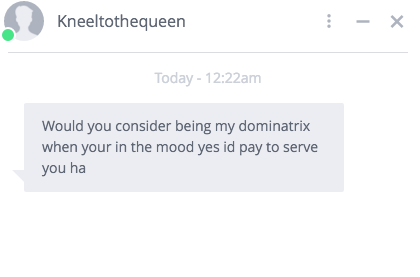
I ignored messages that started with some variation of, “Hi beautiful” and discovered that if I checked my account just before bed, late at night, things sometimes got really weird.
But I also found that there are men willing to take a few minutes to actually get a feel for who you are before they message you, if you’re careful about your profile. I was true to myself in my profile, and even though I got my share of degrading and awful messages, I also discovered that there are plenty of men strong enough to deal with an opinionated, independent woman.
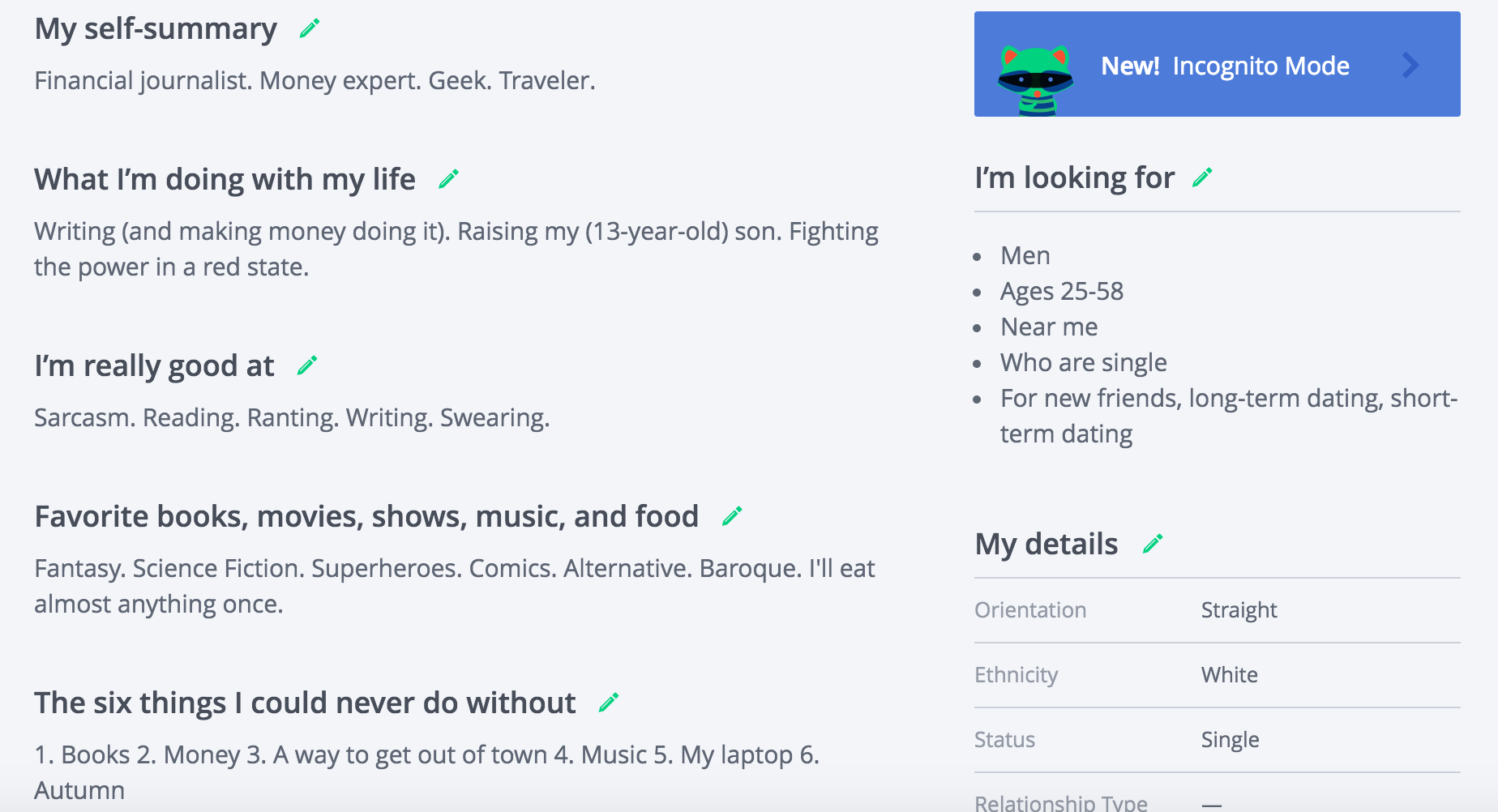
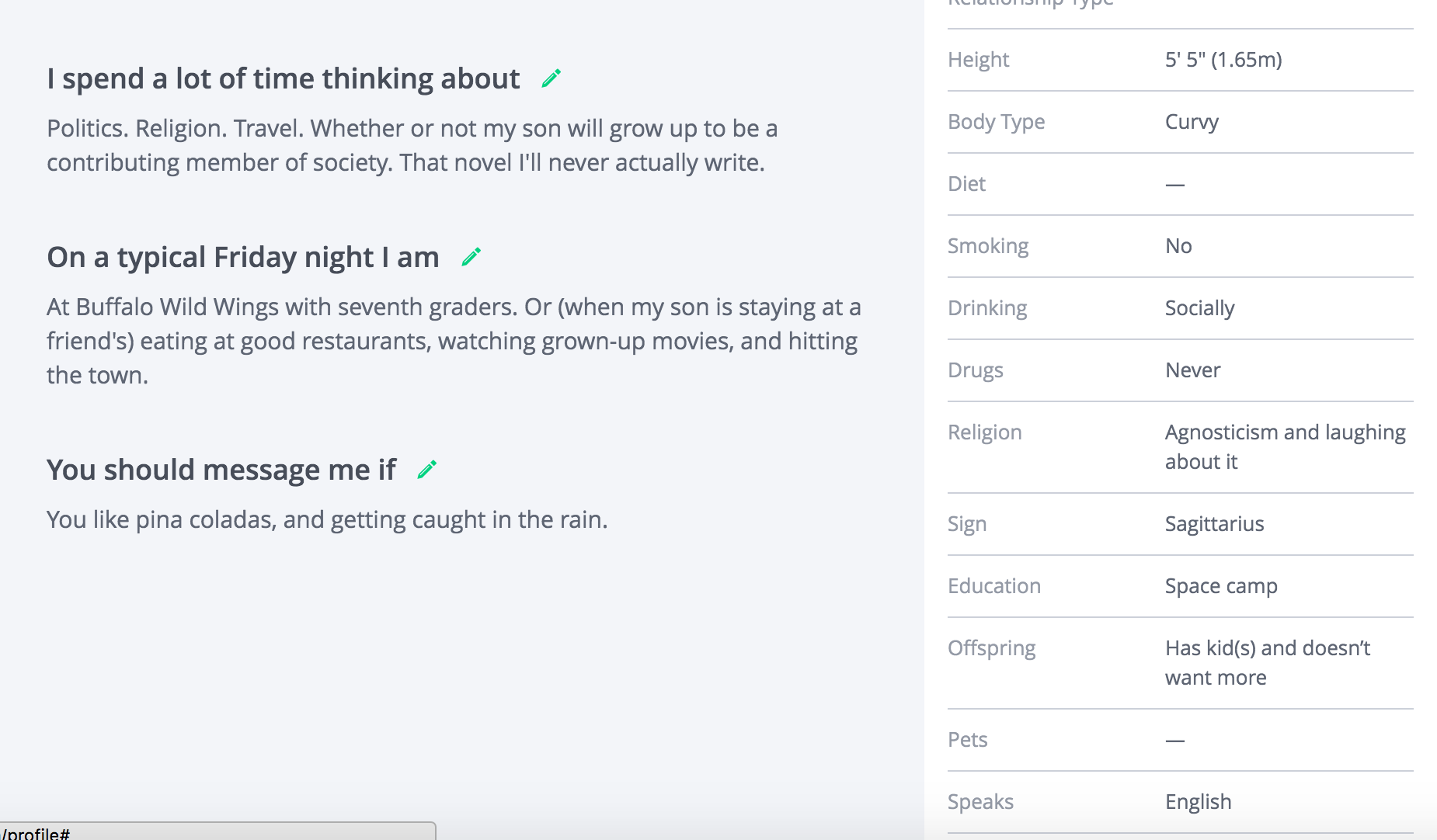
(Fun fact: I actually did attend space camp.)
In the end, I went out on dates with two people I met on OKC, and had extensive text and phone conversations with two others. Also, in a fun twist, a good friend of mine was on the site and he messaged me just for shits and giggles. It was also weird to see a couple people I actually know, but don’t really know on there. Just passed them by because awkward.
It’s any experience you want.
The thing I liked most about my OK Cupid experience is the fact that I could choose how to proceed. The site allows for different gender and sexual expressions. You can also be clear about what type of experience you are looking for, from nothing but sex to monogamous marriage and everything in between. In fact, the most interesting person I met on OKC was in an open relationship. I thoroughly enjoyed learning about his experience over drinks and appetizers.
OK Cupid also has a questions feature that allows you to answer questions, and then indicate which answers you’d accept from a potential match, plus how important that answer is to you.
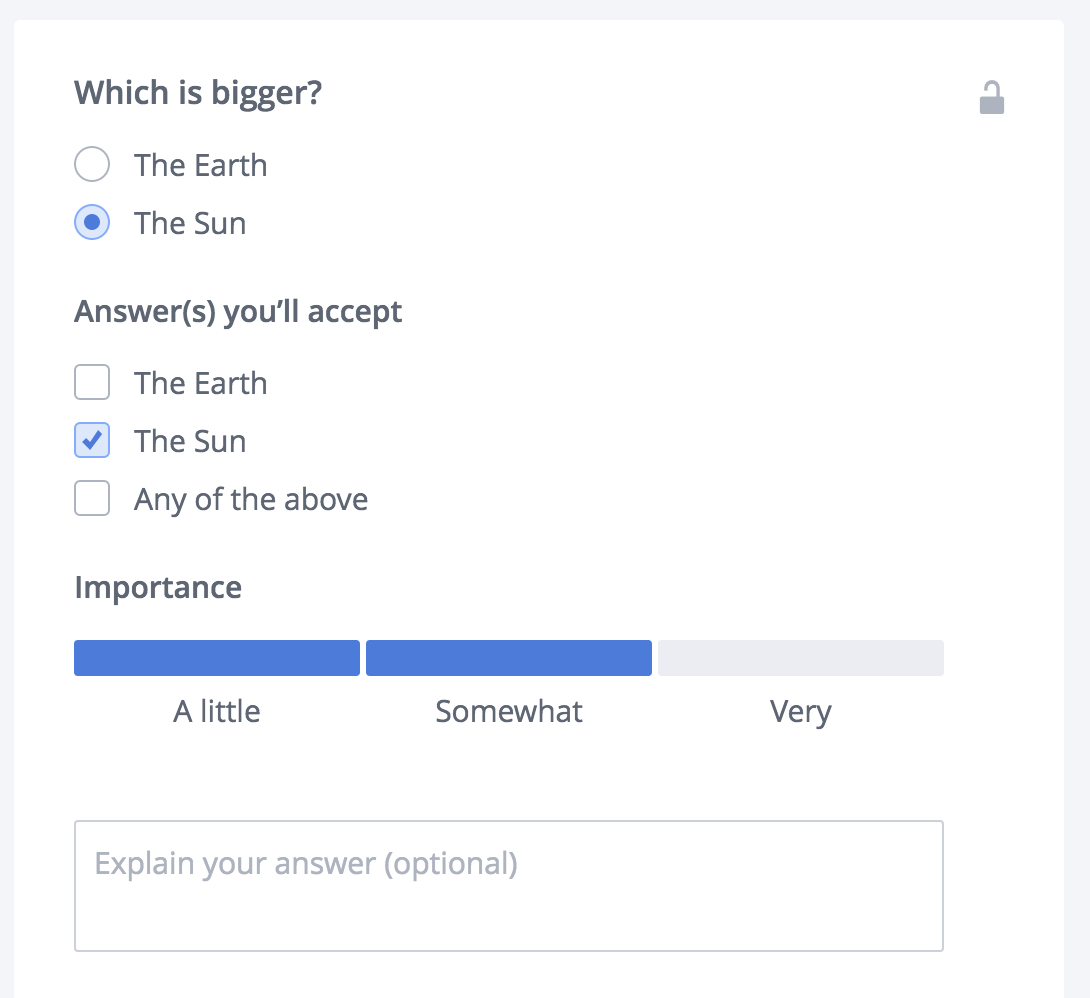
The idea is that you end up with better matches the more questions you answer. Most of the people who contacted me with thoughtful messages, and those I ended up devoting actual time to, were pretty well matched. I think a combination of using the profile, plus the questions I answered dealing with religion, politics, personal habits, sex, and family, helped narrow things down. I am a political and ideological minority in my area, so I think OK Cupid did a pretty good job of narrowing it down.
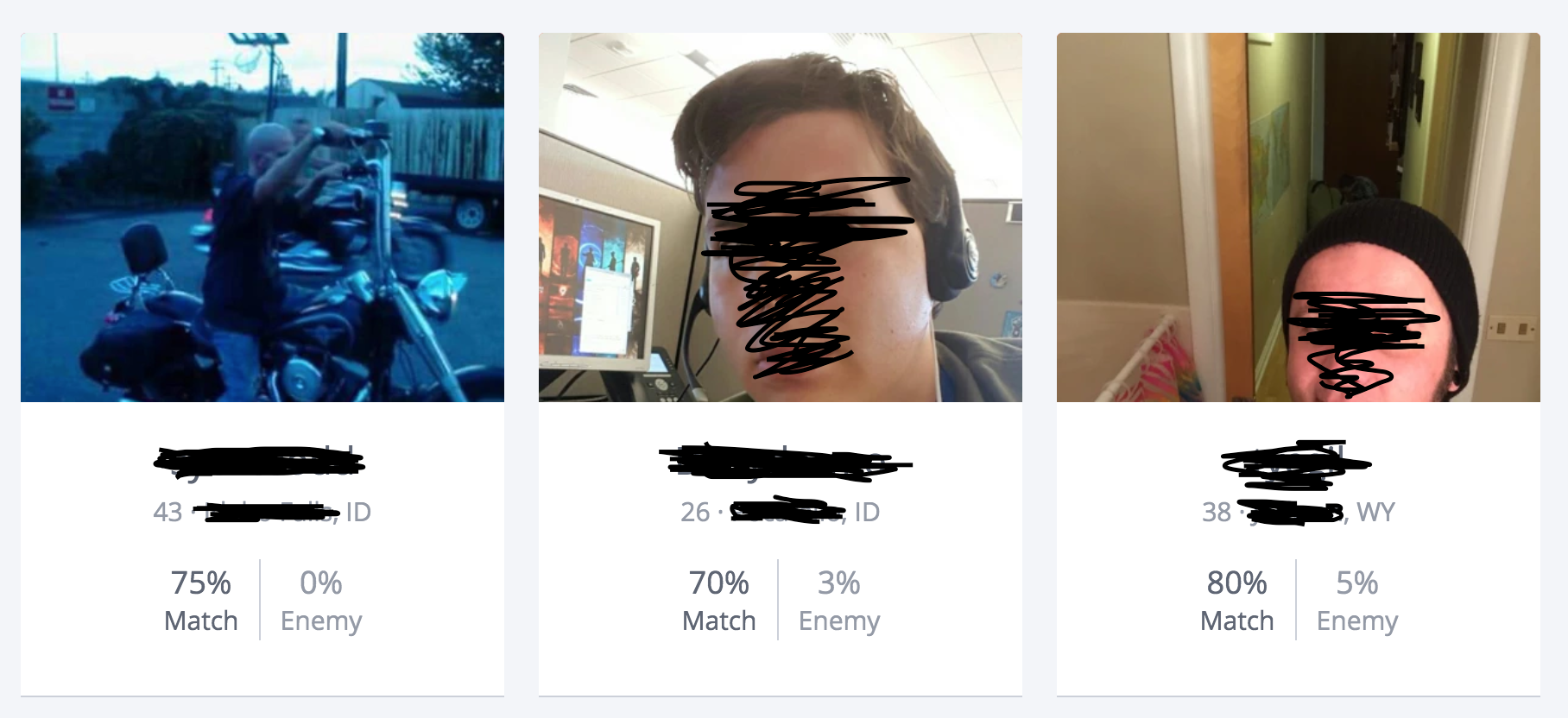

I also like how OKC makes it a point to let you know if there are things you really don’t agree on, with the enemy rating. There are a number of other features as well, such as a swiping feature, similar to Tinder, that allows you to quickly make decisions about people in a gallery at the top of the page.
I like some of the other features as well. You can choose to go “incognito” so that others can’t see your profile unless you either like or message them. Turning on this mode dramatically reduced the number of messages I received, which was nice, and it also reduced the number of horrifying, misogynistic, and sexually aggressive messages I received.
A newer feature is one that allows you to gauge the chances that someone will respond to your message. This seems like a cool feature that can provide you with insight into whether or not sending a message is worth your while. After all, you don’t want to wind up wasting your time.

It’s also possible to pay to boost your profile, allowing you to get in front of more people, if that’s your thing. OKC will also tell you when it’s “rush hour” so you can hop on and see a flurry of activity. If you really want to stay on top of everything, download the app. It can get addicting, though, and I didn’t want it to take over my life, so I promptly deleted the app once I downloaded it. But it was easy to use for the short period of time I did use it.
For the most part, OK Cupid seems to make dating fun. You can sign up to have indications of new matches, new messages, and even see when people are checking you out — right now! It depends on which plan you sign up for, and how much you are willing to pay to find true love (or have a little fun). I was appalled at some of the messages I received, but overall the experience was positive.
How much will OK Cupid cost me?
Like many dating sites, OKC is free initially, but if you want access to certain features, you end up needing to pay. Also, there are features, like “Boost,” that are done on a per-charge basis. For a couple bucks, you’ll be shown to more people in a short period of time.
When you pay for A-List Basic, you can see who likes you, read message receipts, and browse profiles invisibly. Paying can also get rid of the ads and allow you to change your username without any trouble. Plus, you can store more messages (if that sort of thing matters to you). If you are willing to pay even MORE, you can get A-List Premium and get an automatic daily boost and see all public answers to questions before you make your own answers. There’s also message priority, which moves you to the top of your potential matches’ inboxes.
You save more by committing to three or six-month packages. I chose a package that gave me a lower price, and paid a little less than $50 for six months of being on the A-List. (And now, since I’m writing about it, it’s a tax deduction!) The price quoted to me is different now: $19.95 per month or $9.95 per month for six months. To upgrade to Premium, it starts at $34.90 per month, or you can save by getting the six-month package for $24.90 per month. You can set it up through PayPal, which makes things easy and convenient.
With OK Cupid, you pay for everything at once. It’s easy to cancel, but you end up getting the rest of the months on your package if you don’t catch it before renewal. So I get to be A-List for a couple more months, even though I don’t really care at this point.
Overall, OKC was a decent value for what I paid. However, I’m not sure I’d pay for more than six months, although it depends on what your goals are. I’ll probably keep the profile but have it downgraded to the free version.


